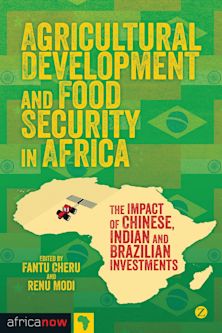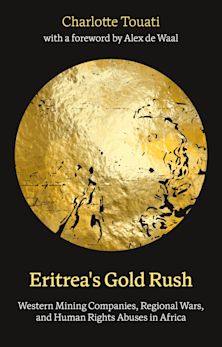- Home
- ACADEMIC
- African & Africana Studies
- Aid and Development in Africa
- Diasporas, Development and Peacemaking in the Horn of Africa
Diasporas, Development and Peacemaking in the Horn of Africa
Diasporas, Development and Peacemaking in the Horn of Africa
You must sign in to add this item to your wishlist. Please sign in or create an account
Description
Exiled populations, who increasingly refer to themselves as diaspora communities, hold a strong stake in the fate of their countries of origin. In a world becoming ever more interconnected, they engage in 'long-distance politics' towards, send financial remittances to and support social development in their homelands. Transnational diaspora networks have thus become global forces shaping the relationship between countries, regions and continents.
This important intervention, written by scholars working at the cutting edge of diaspora and conflict, challenges the conventional wisdom that diaspora are all too often warmongers, their time abroad causing them to become more militant in their engagement with local affairs. Rather, they can and should be a force for good in bringing peace to their home countries.
Featuring in-depth case studies from the Horn of Africa, including Somalia and Ethiopia, this volume presents an essential rethinking of a key issue in African politics and development.
Table of Contents
Part one: Contextualising the Horn of Africa and the diaspora
1. Diaspora and multi-level governance for peace - Liisa Laakso
2. Regional political history and the production of diasporas - Guenther Schlee
Part two: Case studies from the Horn of Africa
3. Rebuilding Somaliland through economic and educational engagement - Markus Virgil Hoehne and Mohamed Hassan Ibrahim
4. The Somali diaspora in conflict and peacebuilding: the Peace Initiative Programme - Mahdi Abdile
5. The 2007 delegation of the Muslim diaspora to Ethiopia - Dereje Feyissa
6. The Ethiopian diaspora and the Tigray Development Association - Bahru Zewde, Gebre Yntiso and Kassahun Berhanu
Part three: European approaches to diaspora engagement
7. Interaction between Somali organizations and Italian and Finnish development actors - Petra Mezzetti, Valeria Saggiomo and Päivi Pirkkalainen
8. Approaches to diaspora engagement in the Netherlands - Giulia Sinatti
9. Norwegian collaboration with diasporas - Rojan Ezzati and Cindy Horst
Afterword - Petri Hautaniemi, Liisa Laakso and Mariko Sato
Product details
| Published | 14 Aug 2014 |
|---|---|
| Format | Ebook (PDF) |
| Edition | 1st |
| Extent | 250 |
| ISBN | 9781783600991 |
| Imprint | Zed Books |
| Series | Africa Now |
| Publisher | Bloomsbury Publishing |
About the contributors
Reviews
-
The enriching volume presents a stimulating overview of the varied positions that members of diasporas hold – such as peacebuilders, investors and civic members – as well as extant gaps related to the study of diasporas, including theoretical frameworks and host country institutional incorporation and engagement.
Africa at LSE
-
This collection successfully translates the nebulous term "diaspora" into precise human and policy terms. The case studies by African and European scholars generate new insights into both the potential and the limitations of "diaspora engagement" policies. The authors' clear conceptual and empirical analyses focus on the dynamic linkages between migrants from the Horn of Africa and Europe. These studies will be of value to students of migration, development and conflict, and the findings should inform donors as well as European and African policy-makers.
David Styan, Birkbeck College
-
While focused on the Horn of Africa, this volume has relevance far beyond that region, as increasing scholarly and policy attention focuses on the developmental role of diaspora and migration. It draws together an impressive array of experts in the region and its diaspora, and adds complexity and nuance to contemporary debates of great significance in our transnational times.
Dr Neil Carrier, African Studies Centre, University of Oxford
-
This carefully crafted collection not only provides a novel insight into the role of diaspora networks in the Horn of Africa and various European host countries, it is also a highly valuable contribution to the field of peace and conflict studies in general, as it lays out the case for a more nuanced approach to the role of diaspora networks in the process of both crafting peace and sustaining wars. As such it is highly recommended.
Professor Morten Bøås, Norwegian Institute of International Affairs
-
This nuanced collection both identifies and transcends a theoretical vacuum in international and regional relations: how varieties of transnational communities or networks contribute to multilevel governance in a trio of somewhat fragile states in the Horn of Africa. Its comparative analyses of diasporas, religions and remittances go beyond realism and romanticism to juxtapose and advance conflict, development, migration and security studies in a way which resonates far beyond Africa and Europe.
Professor Timothy M. Shaw, University of Massachusetts Boston

ONLINE RESOURCES
Bloomsbury Collections
This book is available on Bloomsbury Collections where your library has access.



































